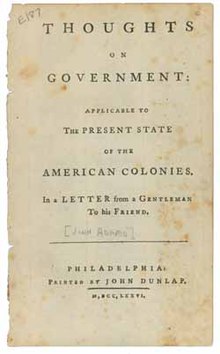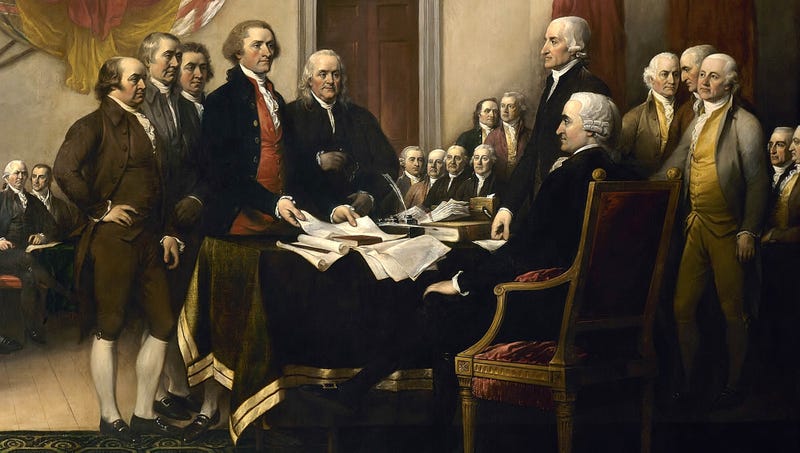I am presently working on a new book, tentatively named "Solve Any Problem." This is the first chapter on the Solution Oriented Mindset. I'm curious to get some feedback and suggestions for points I should be sure to address in the rest of the book.
Chapter 1. Solution Oriented Mindset
“Whether you think you can or whether you think you can't, you're right.”
-Henry Ford
The first step to solving a problem is believing you can solve a problem. In fact, I would venture to say that as many as 90% of the problems in your life can be solved by what you will find in this very chapter.
Among my many careers, I was a driving instructor for a number of years. One of the most important things that you teach in driving is to point your eyes where you want to go. Your hands follow your eyes. If you are skidding on the ice, you want to keep your eyes pointed down the road because that will give you the best chance to recover the vehicle. The tendency is to look at the thing you’re worried about: the guard rail, the other cars, etc, but if you do, that’s where you’ll go.
With a problem it is the same way. The right thing to do is to fixate on the solution to the problem, the desired outcome. If you fixate on the problem, you’ll hit the problem, you’ll stay in the problem. The longer you live in the problem, the easier it will be to tell yourself that the problem is insoluble.
Hopelessness is a very seductive state. Doing nothing is easy, and when there is no solution to a problem, then the right answer is to do nothing. Why waste energy fighting something that cannot be fixed? Why not just resign yourself to your fate and make the most of it?
I’ll tell you why not. That form of resignation is the definition of depression.
There is a difference between resignation and acceptance. Resignation is defeat, embracing the negative. Acceptance is recognizing the negative, but embracing the positive. It can be understood in cinematic terms. When the hero sacrifices himself for the good of the many, standing tall on the bridge of the ship as it falls into the sun with inspiring music, he has weighed the choices and accepted his decision. He will live (or die) with the consequences.
Resignation, on the other hand, is living in an unacceptable situation, crushed by the failure to remedy it.
If you are poor because you have taken a vow of poverty or chosen to dedicate your life to your art with the recognition of the lack of financial opportunities, then the challenges that you encounter from a lack of money are a test of your faith that strengthens your spirit and will. It is the concept behind the deprivations of Lent. If you give up TV for Lent, then every time you walk by the TV, you are reminded of the strength of your faith and why you choose to deprive yourself. If you fast for a religious observance, each hunger pang reminds you of your love for God.
In these forms of acceptance, you would build your life to accommodate them. If you have chosen the life of a starving artist, then you will find inexpensive places to live, learn economical ways to feed yourself, find forms of fulfillment that don’t require money. In doing so, the deprivations of the wallet will not lead to a depression of the spirit.
On the other hand, if you are merely broke because there is too much month at the end of the money, and you have resigned yourself to the idea that you’re poor because your family has alway been poor and your friends are poor and that’s just the crappy hand you were dealt, then every deprivation will be another dagger into your spirit.
The person who has accepted poverty sees a social media post of friends at a fancy dinner and can feel happy for the friends, knowing that they themselves find their joy elsewhere. The person who is resigned to poverty sees the same post and can feel only envy and resentment.
In later chapters, we will discuss the importance of properly framing the problem for finding the solution. “I don’t have any money” is a statement, not an actionable problem. When I was a younger man, I owned a board and role playing game store which was the center of a beautiful and vibrant community. I had very little money, but I had accepted that fact and built my life to accommodate it. My lack of money rarely bothered me except when it affected what was truly important to me at the time which was my ability to build and maintain institutions which served our community.
Later in life, as a family man, not having money at certain times would become more of a problem in and unto itself because I had obligations to support my family which required money.
In that earlier phase, problems which seemed to be a lack of cash could be solved by reframing the situation, shifting or reducing expenditures. In the later phase, the problems of lack of money needed to be solved with finding more money because there were restrictions on how the situation could be restructured.
The opposite of being resigned to a problem is the faith that a solution always exists. The first step in this faith is to understand that the problem is rarely something as concrete as “I don’t have money” or “my company is failing.” Most problems can be broken down to some element of Maslow’s Hierarchy of Needs.
“I don’t have money” is most likely really a problem of safety as in “I need financial security,” or in more severe cases physiological as in “I need to be able to acquire food and shelter.”
Most people fixate on the problem. “I don’t have money.” What they should do is focus on the solution. “How can I acquire financial security?” When the problem is “I don’t have money,” then the only solution can be “get more money.” If the question is one of financial security, a panoply of other solutions come into view. They could find someone who is willing to provide room and board in exchange for being a governess or housekeeper. They could live in a cabin in the woods with no rent or electricity. They could work for a restaurant and get free meals. None of these would create more money, and some might even mean less, but that is not important because it would solve the real problem.
The important thing, regardless of the particular problem, is to first embrace the idea that there is a solution. You just have to find it.
Why do you search your house for your lost keys, but you don’t search your house for a pot of leprechaun gold? You believe that your lost keys are somewhere in your house. You do not believe there is a pot of gold in the house. Why would you waste time searching for something that does not exist.
It is the same way with solutions. Why would you search for a solution that you do not believe exists? When you are searching for your keys, you first search the obvious places: the counter, the couch, the mud room where you take off your boots, etc. Once the obvious places are exhausted you search the less obvious. Are they in the medicine cabinet? Did you put them in the freezer for some reason? The fireplace? The mulch around the bushes out front?
But you will only search the most unexpected locations if your faith that your keys are somewhere in your house is strong. If you are absolutely confident that you brought them into the house.
It is the same way with solutions. If you have a weak belief in a solution to your problem, then you will make a weak search for the solution. In the no money example, maybe you check the job listings once or twice, don’t see anything and give up. On the other hand, if you have an absolute confidence that there is a solution, then you will search high and low. You will never stop looking and trying and experimenting until you find that solution. You will research it. You will ask your friends. You will pray on it. You’ll never stop until you find it.
The best part is that, in many cases, this dedication to finding a solution can lead you to find one in less time than it would have taken to make a cursory search and give up. Why? If you are planning to give up, then you make a plodding and perfunctory search. You don’t try that hard. You have already decided to fail, which perversely means that success would mean you were wrong. On the other hand, if you have decided to succeed, you will seek the most aggressively effective solutions first.
Dave Durand, who has made a study of what he calls legacy achievers, says that one of the most powerful forces in the world is that of self justification. If you believe that you will fail, you want to justify that belief. You will want to justify your resignation. It’s not laziness, it’s prudence. Why waste energy on something that is doomed to fail? See, I tried this, that, and the other, and nothing worked. I put in an effort.
If you only learn one thing from this entire book, let it be the importance of a solution oriented mindset. If you believe that there is a solution, you will find it. You will find it because there is always a solution, so if you never stop looking, you’ll eventually find it. If you can embrace absolute confidence in the existence of a solution, you will eventually intuit everything else I can teach you about problem solving.
That doesn’t mean you should stop reading and figure everything out on your own. While you will intuit it all eventually, it is always more efficient to learn from the mistakes of others rather than making every single one yourself.
Among my many careers, I was a driving instructor for a number of years. One of the most important things that you teach in driving is to point your eyes where you want to go. Your hands follow your eyes. If you are skidding on the ice, you want to keep your eyes pointed down the road because that will give you the best chance to recover the vehicle. The tendency is to look at the thing you’re worried about: the guard rail, the other cars, etc, but if you do, that’s where you’ll go.
With a problem it is the same way. The right thing to do is to fixate on the solution to the problem, the desired outcome. If you fixate on the problem, you’ll hit the problem, you’ll stay in the problem. The longer you live in the problem, the easier it will be to tell yourself that the problem is insoluble.
Hopelessness is a very seductive state. Doing nothing is easy, and when there is no solution to a problem, then the right answer is to do nothing. Why waste energy fighting something that cannot be fixed? Why not just resign yourself to your fate and make the most of it?
I’ll tell you why not. That form of resignation is the definition of depression.
There is a difference between resignation and acceptance. Resignation is defeat, embracing the negative. Acceptance is recognizing the negative, but embracing the positive. It can be understood in cinematic terms. When the hero sacrifices himself for the good of the many, standing tall on the bridge of the ship as it falls into the sun with inspiring music, he has weighed the choices and accepted his decision. He will live (or die) with the consequences.
Resignation, on the other hand, is living in an unacceptable situation, crushed by the failure to remedy it.
If you are poor because you have taken a vow of poverty or chosen to dedicate your life to your art with the recognition of the lack of financial opportunities, then the challenges that you encounter from a lack of money are a test of your faith that strengthens your spirit and will. It is the concept behind the deprivations of Lent. If you give up TV for Lent, then every time you walk by the TV, you are reminded of the strength of your faith and why you choose to deprive yourself. If you fast for a religious observance, each hunger pang reminds you of your love for God.
In these forms of acceptance, you would build your life to accommodate them. If you have chosen the life of a starving artist, then you will find inexpensive places to live, learn economical ways to feed yourself, find forms of fulfillment that don’t require money. In doing so, the deprivations of the wallet will not lead to a depression of the spirit.
On the other hand, if you are merely broke because there is too much month at the end of the money, and you have resigned yourself to the idea that you’re poor because your family has alway been poor and your friends are poor and that’s just the crappy hand you were dealt, then every deprivation will be another dagger into your spirit.
The person who has accepted poverty sees a social media post of friends at a fancy dinner and can feel happy for the friends, knowing that they themselves find their joy elsewhere. The person who is resigned to poverty sees the same post and can feel only envy and resentment.
In later chapters, we will discuss the importance of properly framing the problem for finding the solution. “I don’t have any money” is a statement, not an actionable problem. When I was a younger man, I owned a board and role playing game store which was the center of a beautiful and vibrant community. I had very little money, but I had accepted that fact and built my life to accommodate it. My lack of money rarely bothered me except when it affected what was truly important to me at the time which was my ability to build and maintain institutions which served our community.
Later in life, as a family man, not having money at certain times would become more of a problem in and unto itself because I had obligations to support my family which required money.
In that earlier phase, problems which seemed to be a lack of cash could be solved by reframing the situation, shifting or reducing expenditures. In the later phase, the problems of lack of money needed to be solved with finding more money because there were restrictions on how the situation could be restructured.
The opposite of being resigned to a problem is the faith that a solution always exists. The first step in this faith is to understand that the problem is rarely something as concrete as “I don’t have money” or “my company is failing.” Most problems can be broken down to some element of Maslow’s Hierarchy of Needs.
“I don’t have money” is most likely really a problem of safety as in “I need financial security,” or in more severe cases physiological as in “I need to be able to acquire food and shelter.”
Most people fixate on the problem. “I don’t have money.” What they should do is focus on the solution. “How can I acquire financial security?” When the problem is “I don’t have money,” then the only solution can be “get more money.” If the question is one of financial security, a panoply of other solutions come into view. They could find someone who is willing to provide room and board in exchange for being a governess or housekeeper. They could live in a cabin in the woods with no rent or electricity. They could work for a restaurant and get free meals. None of these would create more money, and some might even mean less, but that is not important because it would solve the real problem.
The important thing, regardless of the particular problem, is to first embrace the idea that there is a solution. You just have to find it.
Why do you search your house for your lost keys, but you don’t search your house for a pot of leprechaun gold? You believe that your lost keys are somewhere in your house. You do not believe there is a pot of gold in the house. Why would you waste time searching for something that does not exist.
It is the same way with solutions. Why would you search for a solution that you do not believe exists? When you are searching for your keys, you first search the obvious places: the counter, the couch, the mud room where you take off your boots, etc. Once the obvious places are exhausted you search the less obvious. Are they in the medicine cabinet? Did you put them in the freezer for some reason? The fireplace? The mulch around the bushes out front?
But you will only search the most unexpected locations if your faith that your keys are somewhere in your house is strong. If you are absolutely confident that you brought them into the house.
It is the same way with solutions. If you have a weak belief in a solution to your problem, then you will make a weak search for the solution. In the no money example, maybe you check the job listings once or twice, don’t see anything and give up. On the other hand, if you have an absolute confidence that there is a solution, then you will search high and low. You will never stop looking and trying and experimenting until you find that solution. You will research it. You will ask your friends. You will pray on it. You’ll never stop until you find it.
The best part is that, in many cases, this dedication to finding a solution can lead you to find one in less time than it would have taken to make a cursory search and give up. Why? If you are planning to give up, then you make a plodding and perfunctory search. You don’t try that hard. You have already decided to fail, which perversely means that success would mean you were wrong. On the other hand, if you have decided to succeed, you will seek the most aggressively effective solutions first.
Dave Durand, who has made a study of what he calls legacy achievers, says that one of the most powerful forces in the world is that of self justification. If you believe that you will fail, you want to justify that belief. You will want to justify your resignation. It’s not laziness, it’s prudence. Why waste energy on something that is doomed to fail? See, I tried this, that, and the other, and nothing worked. I put in an effort.
If you only learn one thing from this entire book, let it be the importance of a solution oriented mindset. If you believe that there is a solution, you will find it. You will find it because there is always a solution, so if you never stop looking, you’ll eventually find it. If you can embrace absolute confidence in the existence of a solution, you will eventually intuit everything else I can teach you about problem solving.
That doesn’t mean you should stop reading and figure everything out on your own. While you will intuit it all eventually, it is always more efficient to learn from the mistakes of others rather than making every single one yourself.

































